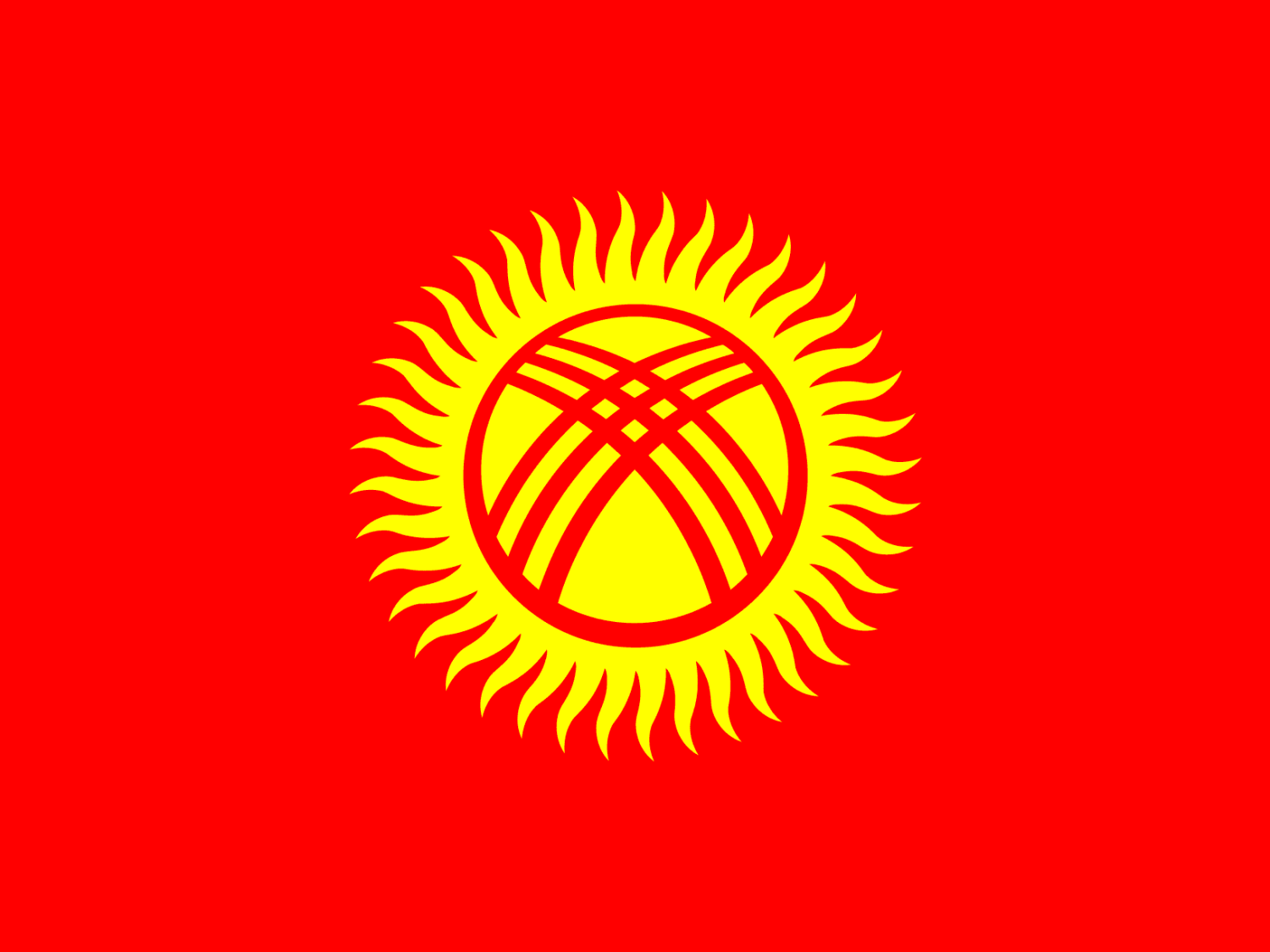Moving to Kyrgyzstan
Simply move better with reloqio
✔️ Get offers free of charge – No obligation, no worres.
✔️ Quality-tested partners – Reliable and experienced.
✔️ Selection in your region – Find the perfect offer and save up to 45%.

Overview
Introduction to Kyrgyzstan
Kyrgyzstan, a landlocked country in Central Asia, is known for its stunning natural landscapes, including towering mountains, lush valleys, and pristine lakes. As one of the least urbanized countries in the region, Kyrgyzstan offers a unique blend of traditional nomadic culture and Soviet-era influences. The capital, Bishkek, is a modest city that serves as the country’s political and economic center. While Kyrgyzstan is rich in natural beauty and cultural heritage, it also faces challenges, including political instability, economic difficulties, and underdeveloped infrastructure, which can make life challenging for expatriates.
Why Move to Kyrgyzstan
Moving to Kyrgyzstan offers the opportunity to experience a country with a deep cultural history and some of the most breathtaking landscapes in the world. The country’s low cost of living and relatively relaxed lifestyle can be appealing, especially for those seeking a simpler way of life or interested in outdoor activities like trekking and horseback riding. However, expatriates should be prepared for the challenges of living in a developing country, including limited access to certain goods and services, bureaucratic hurdles, and the need to adapt to a different pace of life. The political situation can also be volatile, and it’s important to stay informed about local conditions.
Cost of Living in Kyrgyzstan
The cost of living in Kyrgyzstan is generally low, particularly when compared to Western countries. Housing, food, and transportation are all very affordable, making it possible to live comfortably on a modest budget. However, the availability of imported goods is limited, and items such as electronics and international brands can be expensive. Additionally, while basic services are inexpensive, the quality of healthcare and education can vary, particularly outside of Bishkek. Expatriates should budget for private healthcare and possibly international schooling if they have children. Despite these challenges, the low cost of living is one of the country’s main attractions.
Visa and Residency
Types of Visas
Kyrgyzstan offers several types of visas, including tourist, business, and work visas. Many nationalities can enter Kyrgyzstan visa-free for short stays, typically up to 60 days. For longer stays, expatriates will need to obtain a visa, usually requiring sponsorship from an employer or an invitation from a Kyrgyz organization. Work visas are the most common for expatriates and involve submitting documents such as proof of employment, a valid passport, and possibly a criminal background check. It’s important to check the latest visa regulations, as policies can change, and ensure that all paperwork is complete and accurate.
Requirements for Obtaining Residency
Obtaining residency in Kyrgyzstan usually begins with securing a work visa. Once in the country, expatriates can apply for a temporary residence permit, which is typically valid for one year and can be renewed. The process involves submitting various documents, including proof of employment, a lease or proof of accommodation, and a health certificate. For those planning to stay long-term, permanent residency is possible, but it requires a more extended period of continuous residence in Kyrgyzstan and meeting additional criteria. The residency process can be bureaucratic and time-consuming, so it’s advisable to work with your employer or a local legal expert.
Renewing Residency
Renewing residency in Kyrgyzstan involves extending your work visa and residence permit. The renewal process requires careful attention to detail, including the timely submission of documents such as proof of ongoing employment and housing. It’s important to begin the renewal process well before your current permit expires to avoid any legal issues. Employers typically assist with the renewal process for their expatriate employees, but staying informed about changes in immigration laws and procedures is crucial to ensure a smooth renewal process.
Finding Accommodation
Popular Neighborhoods in Kyrgyzstan
In Bishkek, popular neighborhoods for expatriates include the city center, which offers proximity to international schools, embassies, and modern amenities. Areas like Sovetskiy and Vostok-5 are known for their relatively high standard of living, access to parks, and a mix of modern and Soviet-era buildings. Outside of Bishkek, the availability of expatriate-friendly accommodation is more limited, but cities like Osh also offer housing options, particularly for those working in development or humanitarian sectors. Housing in Kyrgyzstan is generally affordable, but the quality of apartments and houses can vary significantly, especially outside major cities.
Renting vs Buying Property
Renting is the most common option for expatriates in Kyrgyzstan, particularly for those on short- to medium-term assignments. Rental properties are available in major cities, with prices varying depending on location and quality. Leases are usually straightforward but often require a security deposit and the first month’s rent in advance. Buying property in Kyrgyzstan is possible for foreigners, and the process is relatively straightforward compared to other countries in the region. However, it’s important to work with a reputable real estate agent and legal advisor to navigate the process and understand the local property laws, particularly regarding land ownership.
Tips for Finding Accommodation
When searching for accommodation in Kyrgyzstan, consider factors such as proximity to work, access to public transportation, and availability of amenities like schools, healthcare, and shopping centers. Working with a local real estate agent who understands the market can be helpful, especially for expatriates unfamiliar with the area. It’s important to inspect properties carefully before signing a lease, as the quality of housing can vary widely. Be prepared to negotiate rental terms, and ensure that all lease agreements are clear and legally sound. Starting your search early is advisable, particularly in popular areas of Bishkek where demand can be high.
Kyrgyzstan’s location in Central Asia offers opportunities for travel and exploration in neighboring countries. For those interested in exploring the region, the historical cities and rich culture of Uzbekistan, the vast steppes of Kazakhstan, or the mountainous landscapes of Tajikistan are all within reach.
Settling In
Healthcare System in Kyrgyzstan
Kyrgyzstan has a developing healthcare system with both public and private options. Public healthcare is available but often lacks modern equipment and resources, particularly outside of Bishkek. Many expatriates prefer private clinics, which offer higher standards of care, shorter waiting times, and sometimes English-speaking staff, but these can be expensive. It is advisable to have comprehensive health insurance that covers private healthcare and potential medical evacuation, as specialized treatments may not be available in Kyrgyzstan. Access to high-quality healthcare can be limited, particularly in rural areas, so expatriates should plan accordingly.
Education System in Kyrgyzstan
Kyrgyzstan offers several educational options for expatriate families, including public schools, private schools, and a few international schools. Public schools follow the Kyrgyz or Russian curriculum and are taught in the respective languages, which can be challenging for non-Kyrgyz or non-Russian-speaking children. Many expatriate families opt for international schools, which offer curricula based on British, American, or International Baccalaureate (IB) systems. These schools are mainly located in Bishkek and are known for their high academic standards, although fees can be high. Early application is recommended, as spaces in international schools can be limited.
Cultural Etiquette and Customs
Kyrgyzstan is a culturally rich society with a strong tradition of hospitality and respect for elders. Understanding and respecting local customs is important for expatriates. Kyrgyz culture is heavily influenced by nomadic traditions, and it’s common to be invited to homes for meals, where showing appreciation for the food and hospitality is essential. Dress codes are generally conservative, especially in rural areas, and it’s important to dress modestly, particularly when visiting religious sites. Building personal relationships is key in both social and business settings, and taking the time to understand the local customs and language, even at a basic level, can greatly enhance your experience in Kyrgyzstan.
{filterable_table}
Ready for your move to Kyrgyzstan? Get free quotes now!
Enquire about moving offers here and get quick answers with cost estimates.
It only takes 2 minutes and you can save up to 45% on your move to Kyrgyzstan!
